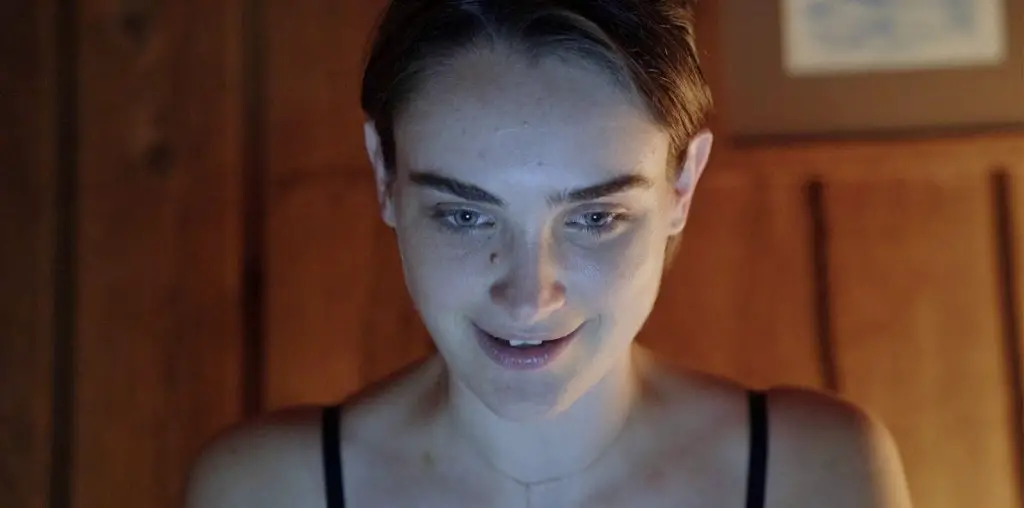
“Brother” is another nihilistic, post-Reservoir Dogs blend of tiresomely hip humor and serious splatter. After “Things To Do In Denver When You’re Dead,” The Way of the Gun, Snatch, and a gazillion other Tarantino imitators, here comes the Far East variation on this incredibly influential style of shades ‘n trench coats-sporting criminals spouting both trashy talk and crimson rivers. So liberal is the bloodletting in “Brother,” that Los Angeles would soon rival Wyoming and Alaska as one of America’s most barren, unpopulated landscapes, were the film’s head honcho to unleash his own brand of ballistic population control in Southern California for even a day. But Brother is somewhat distinguishable from the pack, if only because lead man “Beat” Takeshi Kitano (who also wrote, directed, and edited the film) is so hilariously laid-back. Hiding behind dark glasses and a leathery, pock-marked face, Kitano is like a grizzled, fifty-something seen-it-all – and he’s amused by what he observes, laughing in the face of death like it’s just one more day at the office. Ho hum.
Unlike other Asian film personas, like the elegant, suave Chow Yun Fat and the manic, clownish Jackie Chan, Kitano resembles a weather worn turtle. Reluctantly poking his head out from under a shell just long enough to waste a few irritating yakuza slimeballs with some carefully-orchestrated lead-slinging, one can picture this resigned ol’ cowboy chuckling at the absurdities of life before retiring to some dark hole for a good night’s sleep. The guy might be a tad slow, but he carries with him the wisdom of the ages.
“Brother” opens with a casual, unruffled pace, as Kitano’s character, Yamamoto, navigates down La Brea Street in the City of Angels. It’s clear that Yamamoto is a stranger in a strange land, and flashbacks reveal that his underworld family in Japan has recently been wiped out by some younger, meaner yakuza gangsters. He retreats to the U.S., and searches the streets for his half-brother, Ken (Claude Maki). For the first several minutes of the film, its star is wordless. Laconic to the extreme, Yamamoto is so stone-faced and static that he makes Clint Eastwood look like Jim Carrey on angel dust.
We watch this loner track down Ken, and his rowdy encounter with an intimidating hoodlum shows that beneath his relaxed manner, Yamamoto is capable of swift, sudden violence. He gashes the punk’s eye with a glass bottle, then chills out again, sauntering down the boulevard as if nothing had happened. Eventually, he finds his sibling shacking up in a seedy apartment, and sharing company with some amateur crooks. This had not been the family master plan for Ken, whom we learn was sent to America by Yamamoto with a healthy checking account with which to pay for an education. The older brother is disappointed to find that his sibling has frittered away money not on school, but on illicit trades like dope peddling with his none-too-ambitious buddies, which include Denny (Omar Epps), Jaye (Royale Watkins), and Mo (Lombardo Moyar). “My brother doesn’t speak English,” Ken informs his fellow toughs, who are puzzled by the quiet manner of Ken’s relative. “What do I do with him?”
But Yamamoto, it turns out, does what he wants, when he wants. Putting aside his idealistic hopes for Ken, and deciding that if one is gonna do something, he might as well do it right, the elder member of this ethnically diverse motley crew is soon whipping it into a menacing, domineering underworld force.
“Brother” can be hysterically funny. The less professional crooks stand by, shaken and wide-eyed, as their new leader shoots his way through rival Asian criminals, black gangs, and Mafia henchmen, all with the laid-back elegance of a seasoned dancer. So matter-of-fact is Yamamoto’s style that even the most horrific violence in the film often induces laughter. Take, for instance, a hotel meeting with Mexican crime rivals, where failed negotiations lead to tension at a table rigged with guns, hidden beneath its surface. “F*****g Jap,” giggles an unimpressed adversary from across the wooden surface. “You can’t even speak English.” Suddenly, Yamamoto lets loose with a hailstorm of lead. As the smoke rises from a pile of dead Mexicans, this killer unleashes the corker: “I understand ‘f*****g Jap,’ a******s.”
As soon as you can say “upward mobility,” Yamamoto’s group has a swank new headquarters, complete with indoor basketball court and a personal accountant. But all good things must come to an end, as Yamamoto finds out while trying to waste some persistent Italian goodfellas that simply won’t lie down and play dead. Eventually, the veteran lowlife finds that even in America, to live by the sword is to die by the sword, as he endures a cluster of Scarface-level bullet exchanges.
After an orgy of finger-slicing, beheadings, chopsticks-up-the-nose, and other disturbing means of yakuza-style mayhem, Brother turns into a male-bonding buddy pic. The African American Denny finds himself adopted by Yamamoto as a kind of stateside brother, and there’s an act of selfless salvation at the end that brings to mind John Woo’s The Killer or Abel Ferrara’s Bad Lieutenant.
Does the film work? If you have a taste for ironic, jet-black humor, “Brother” delivers. As an action film, however, Kitano provides more routine fare that seldom matches the dark beauty of similar blood cinema masters, like Woo, Sam Peckinpah, or early Brian DePalma. Still, this overseas heir to Clint Eastwood certainly commands authority. Fans can also catch him upping the body count in the disturbing, Survivor-meets-Lord of the Flies grue-fest “Battle Royale.” It’s clear that he’s still got a few more bullets in his .38 to dispense before he retires.
